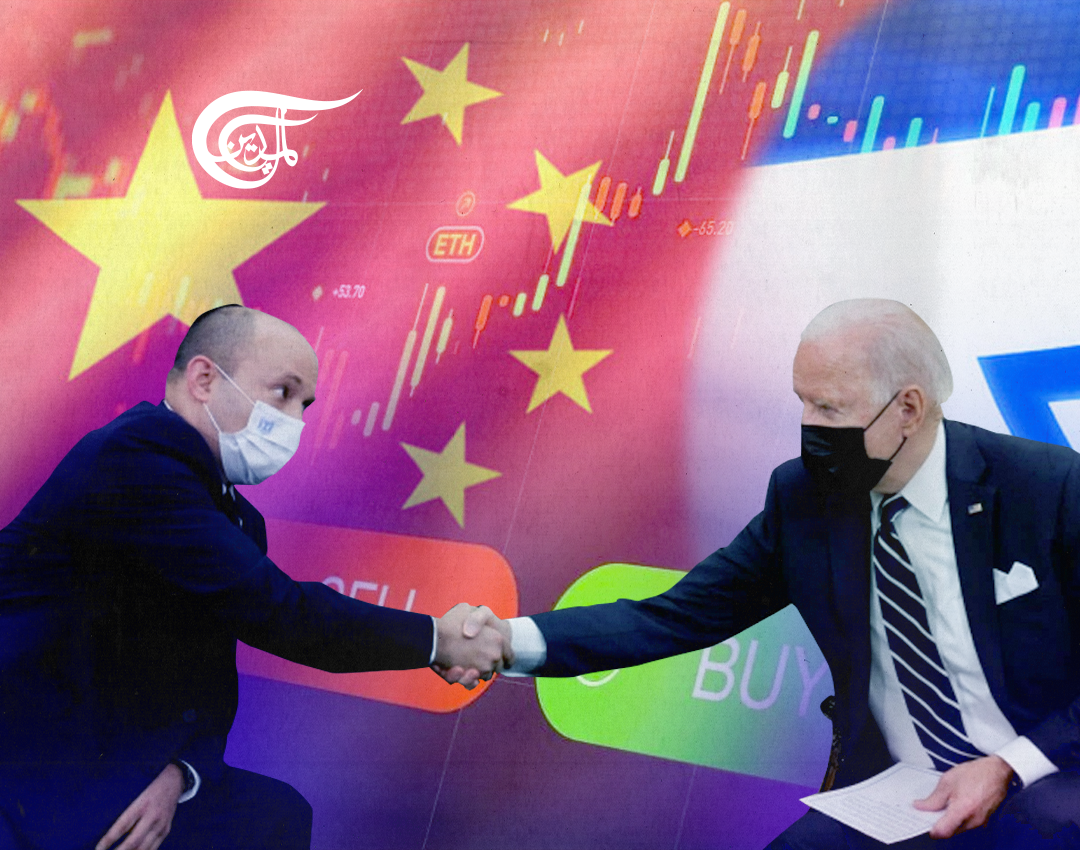"Israel" Seeks to Replace the US with China after Afghanistan Withdrawal
The belt and road initiative will spread economic prosperity and Chinese influence across the Middle East, and "Israel" does not want to be left out.
On August 28, 2021, "Israel’s" Prime Minister Naftali Bennet met with Biden’s administration to discuss how the United States expects "Israel" to act towards China. This comes a day after "Israel" inaugurated the Chinese-run Haifa port terminal which was leased to China for 25 years. On the same day, an opinion piece written by "Israel’s" former president Ehud Olmert appeared in the Jerusalem post, insisting that "Israel" should refuse US demands to cool relations with China. He expressed his worry that the US appears weak, and then in the next sentence, he felt obligated to insist that this had nothing to do with its withdrawal from Afghanistan. But reading between the lines the message is clear, the US is a falling empire, and rather than sink with the ship, "Israel" is preparing to jump to a new host.
…I too begin to worry that the US’s strength is actually much weaker than we thought it was, in particular the image of its strength. I FEEL OBLIGATED to make it clear that this impression has nothing to do with President Joe Biden’s decision to withdraw from Afghanistan.” - Olmert
While the US appears weaker, China is appearing stronger. As the US leaves Afghanistan, China has moved in to fill the vacuum with plans of reconstruction and cooperation rather than invasion. Last week, Taliban spokesman Zabiullah Mujahid called China the country’s “most important partner” and the deputy head of the Taliban office pledged to ‘actively support’ the belt and road initiative of ‘trustworthy friend’ China. The belt and road initiative will spread economic prosperity and Chinese influence across the Middle East, and "Israel" does not want to be left out.
As Bennet left the meeting with Biden, he stated flatly that the US did not make any specific demands of "Israel" vis-à-vis China. In other words, "Israel" isn’t obligated to change anything in its dealings with China. But even when the US has made demands in the past, "Israel" has ignored them. In February, "Israel" rejected the US’s request to inspect the Haifa port and has repeatedly ignored US warnings against signing the port deal in the first place.
But it isn’t just the Haifa port deal that has frustrated the US. In March, "Israel" sold suicide drone technology to China, and last December, the US warned that Chinese investments in Israeli artificial intelligence would pose a security threat. In 2013, "Israel" transferred secret US missile tech to China, a repeat of an incident in 2001 when "Israel" sold China US developed sidewinder missile technology in spite of American demands to cancel the contract. In fact, "Israel" has been selling US secret military technology to China since the 1980s. "Israel" gave China US F-16 fighter Jet technology and helped develop its tank programs. In the 90s, then CIA Director James Woolsey said that "Israel" had been selling US secrets to China for a decade. But it seems the US was, and continues to be, incapable of putting an end to this behavior, the US’s ‘special relationship’ with "Israel" appears to be one-sided.
Part of "Israel's" motivation in selling out the US, has been to use its influence in China to limit its relationship with Iran and Syria. "Israel" began making the deals in the 1980s in exchange for Chinese restraint in arms sales to countries in the near east. Last month, Israeli government sources told Breaking Defense that if China attempts to expand its defense technology ties with Iran then Jerusalem may cut off its economic agreements with Beijing.
But "Israel’s" gamble might not pay off. In March, China signed a 25-year strategic agreement with Iran and in July China met with Syria’s President Assad to discuss rebuilding the country. Furthermore, China’s support for the Palestinian cause has a long history dating back to the non-aligned movement. Beijing only recognized "Israel" after Arafat did so, during the Oslo accords. During "Israel’s" latest bombing of Gaza, China was exceptionally vocal in its support for Palestine. A month later, "Israel" was accusing China of human rights violations at the UN, a slight that China is unlikely to forget.
With the US increasingly beating the drums of war against China, it would be foolish if China chooses to strengthen its relationship with Saudi Arabia and "Israel" at the expense of countries to which the US is hostile, such as Syria and Iran. China’s Belt and Road initiative relies on stability in all participating nations. Beijing may be concerned about "Israel" potential to destabilize the region given its location. In 2019, China was holding discussions to invest in a port in Lebanon as a potential gateway to Syria. Then in 2020, a blast took out the port in Beirut; some Lebanese officials believe it was "Israel’s" doing.
"Israel" may believe it can continue its double-dealings with China and the US because the influence of the Zionist lobby over American politics is so powerful that no US administration would be able to withdraw support. But, as foreign policy magazine points out in an article named “Can China replace the United States in Israel”, "Israel’s" popularity is weakening amongst left-wing Americans, and this pivot towards China may also make them lose support among the right. As the crack grows wider between China and the US, "Israel" will be forced to choose and it may try to opt for China. But as it attempts to jump ship from the US to China, "Israel" may find itself cut adrift and lost at sea.

 Maram Susli
Maram Susli
 5 Min Read
5 Min Read












